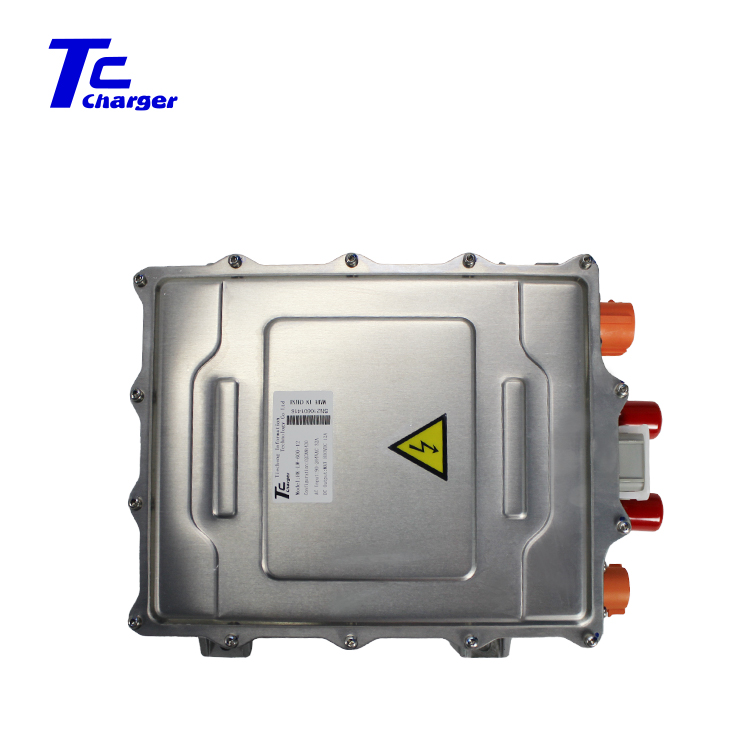How On-Board Chargers Enhance the Environmental Benefits of Electric Vehicles
Jul 26,2024 | TCcharger

Electric vehicles (EVs) are celebrated for their potential to reduce greenhouse gas emissions and dependence on fossil fuels. While much of the focus is on the vehicle’s battery and powertrain, one crucial component that contributes significantly to the environmental benefits of EVs is the on-board charger. This device plays a key role in optimizing the charging process and, by extension, the overall eco-friendliness of electric vehicles. In this blog, we’ll explore how on-board chargers enhance the environmental performance of EVs and support a greener future.
What is an On-Board Charger?
An on-board charger (OBC) is a device located within an electric vehicle that converts alternating current (AC) from a charging station into direct current (DC), which is used to charge the vehicle’s battery. This conversion is essential because EV batteries require DC power, while most charging stations provide AC power.
How On-Board Chargers Contribute to Environmental Benefits
-
Optimizing Energy Efficiency
On-board chargers are designed to maximize energy efficiency during the charging process. By effectively converting AC power to DC power with minimal losses, they ensure that the maximum amount of energy from the charging station is utilized to charge the vehicle’s battery. This efficient energy use reduces the overall electricity demand and minimizes waste, contributing to a more sustainable energy consumption pattern.
-
Supporting Renewable Energy Integration
Many electric vehicle owners use renewable energy sources, such as solar or wind power, to charge their EVs. On-board chargers are capable of handling varying power inputs and can adapt to the fluctuating outputs from renewable energy sources. This flexibility supports the integration of clean energy into the grid and encourages the use of sustainable energy solutions, further reducing the environmental impact of electric vehicles.
-
Enabling Smart Charging Features
Advanced on-board chargers come with smart charging capabilities that allow for more efficient use of electricity. Features such as delayed charging or charging during off-peak hours help balance the load on the electricity grid. By shifting charging to times when renewable energy is more abundant or when overall demand is lower, these features contribute to a reduction in the carbon footprint associated with EV charging.
-
Reducing Grid Strain and Emissions
On-board chargers help mitigate strain on the power grid by managing the rate of charging and coordinating with the grid’s energy supply. This can lead to a more balanced load distribution and reduce the need for additional, less environmentally friendly power generation. By preventing spikes in energy demand, on-board chargers indirectly reduce emissions from fossil-fuel-based power plants.
-
Enhancing Battery Longevity and Efficiency
Proper management of the charging process by on-board chargers not only protects the battery but also ensures that the EV operates at peak efficiency. A well-maintained battery performs better and lasts longer, reducing the need for frequent replacements. This decreases the environmental impact associated with battery production and disposal, contributing to the overall sustainability of electric vehicles.
-
Promoting Vehicle-to-Grid (V2G) Technology
Emerging technologies such as vehicle-to-grid (V2G) involve EVs feeding excess energy back into the grid. On-board chargers play a crucial role in enabling these technologies by facilitating bidirectional energy flow. V2G systems can help stabilize the grid and provide additional storage for renewable energy, enhancing the overall efficiency and environmental benefits of both EVs and the energy system.
Future Prospects
As technology continues to advance, on-board chargers are expected to become even more efficient and versatile. Future developments may include higher charging speeds, better integration with smart grids, and enhanced capabilities for managing renewable energy sources. These innovations will further amplify the environmental benefits of electric vehicles, supporting a transition to a more sustainable and eco-friendly transportation system.
Conclusion
On-board chargers are much more than just a component that converts power—they are vital to maximizing the environmental benefits of electric vehicles. By improving energy efficiency, supporting renewable energy, enabling smart charging features, and reducing grid strain, on-board chargers contribute significantly to the eco-friendliness of EVs. As we continue to advance in both technology and sustainability, these devices will play an increasingly important role in supporting a greener future for transportation.



